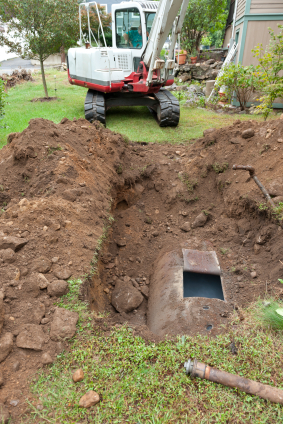Finding the truth about a property

What's not on the property title may be important
In West Vancouver, on the advice of her REALTOR®, a property seller checked to see if there was an underground fuel storage tank on her property.
There was and the seller had the tank removed and the contaminated soil remediated. The bill was $202,963.07.
The seller had bought the property in 2001 without using the services of a REALTOR® and had been told by the previous owner that the tank had been removed or decommissioned.
The seller sued the former property owner and won because the owner hadn’t disclosed the severity of the problem. (Note: a REALTOR® was not involved in the 2001 sale).
What do these examples have in common?
- In Richmond, an illegal drug lab in a rental home on a busy street resulted in a neighbourhood evacuation.
- In Marpole, the owners of a non-profit theatre learned from a neighbouring business that the building they own is one of a dozen commercial sites sitting on a midden, the location of Aboriginal artifacts.
- A home on Cambie and King Edward is referred to in media stories as haunted.
None are registered on the property title.
This means that current and future owners may not know about issues associated with their property that could affect its safety, ease of sale and ultimate value.
What is registered on the property title?
The legal description of a property, including:
- the parcel identification (PID);
- taxation authority;
- registered owner and their address;
- the title number;
- the previous title number;
- legal notations against the property (may include heritage);
- charges, liens and interests (under-surface rights, rights of ways, covenants, judgments);
- whether a duplicate title has been ordered and by whom, and
- transfers and pending applications.
What is not registered on title?
- Archaeological sites.
- Former grow ops and illegal drug labs.
- Heritage designations (not always on title).
- Highway entitlements.
- Stigmatized property.
- Streamside issues – if there are fish-bearing ditches or creeks on the property.
- Underground fuel storage tanks.
How can you discover the facts about a property?
- 1 - Ask the owner.
- 2 - Visit the local government (municipal) website where you will find a range of information, for example:
- Richmond provides a road map of designated heritage buildings and homes, and includes photos. (Note: there is no available universal public registry of homes previously used as grow ops and illegal drug labs.)
- The City of Vancouver confirms if a property has been used as a grow op or illegal drug lab to anyone phoning 604.871.6231. The City does not provide the owner’s name in keeping with privacy legislation.
- West Vancouver provides a list of properties known to have underground storage tanks. Visit: www.westvancouver.ca and search Fuel Storage Tank Program. Scroll to More Information and see Fuel/ Oil Tank Records Search.
If you don’t find what you need online, phone your local government or go in person. Depending on the municipality, there may be comprehensive data.
- There is a BC Heritage Sites Inventory. Information about its properties comes from local governments, so start there first.
- Check the BC Archaeological Site Inventory at www.for.gov.bc.ca/archaeology/accessing_archaeological_data/index.htm. You can also phone: 250.953.3334.
- You can request site data at www.archdatarequest.nrs.gov.bc.ca. If possible, please include PID. Requests will be filled within 5-15 business days.
- Search the BC Government’s Contaminated Sites Registry which lists some contaminated sites. It is available through www.bconline.gov.bc.ca. (Go to Products). There is a charge to access the database.